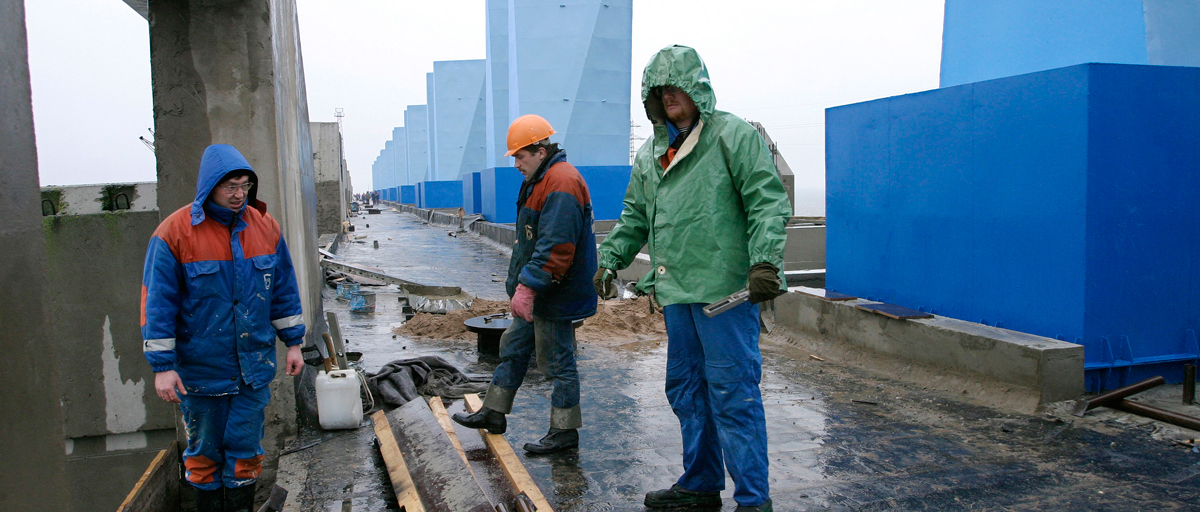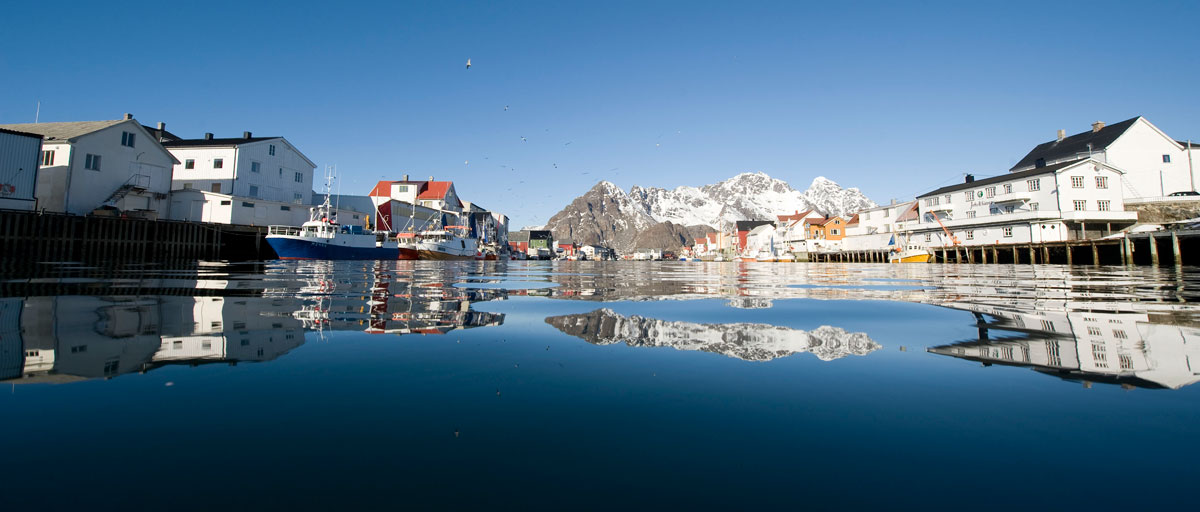Time:
00:05:26
%20AnneSophie_web.jpg)
Bildtext
Bildtext får vara max två rader text. Hela texten ska högerjusteras om den bara ska innehålla fotobyline! Photo: B. Christensen/Azote
International women's day
Human behaviour and complex ecosystem dynamics
To celebrate International Women's Day, we highlight five of our female researchers. First is Anne-Sophie Crépin who looks at the interplay between economic incentives, ecosystem regime shifts, policy and human behaviour
- Anne-Sophie is the deputy director of the Beijer Institute of Ecological Economics and a researcher at SRC
- Her research focuses on the interplays between human behaviour and ecosystems
- She recently completed work on climate changes' impact on Arctic economy and society
Change is all around us. From the melting sea-ice in the Arctic Ocean to shifts from forest to savannas in Honduras. Now more than ever we need to understand the nature of these changes better. The global drivers of changes like these, known here as regime shifts, have already been identified as climate change and agriculture, respectively.
It is no surprise then that human behavior and the economy have had an enormous impact on our natural resources. Persistent high demands from the global market for natural resource goods has led to unsustainable exploitation and in some cases near depletion.
An example can be seen in international fish trade. The global seafood trade and lack of price signals from local fisheries to consumers, masks declines in fish stock. This leaves consumers unaware of over-exploited marine ecosystems. These kinds of changes are identified by resilience scientists as regime shifts – or in other worlds, large, abrupt and persistent changes that we are starting to see in the Earth’s social-ecological systems.
The nuances between economics, human behavior and regime shifts need diving into because big questions still remain, like how does the interplay between ecosystems and socioeconomic dynamics influence the risk of abrupt changes which could lower human well-being? Or how can society deal with this risk in a way that sustains long term human well-being?
Luckily, those are the main focuses of Beijer Institute of Ecological Economics’ Deputy Director and researcher Anne-Sophie Crépin’s work. Together with colleagues from both within and outside the Beijer Institute, she develops small theoretical dynamic models that combine relevant economic factors with complex ecosystem dynamics.
%20AnneSophie_Int'lWomensDay_edited.jpg)
Anne-Sophie holds a PhD in Economics from the Department of Economics at Stockholm University. She also holds a Bachelor degree in urban and regional planning from Stockholm University. She received the diploma from Sciences Po Strasbourg (France), which corresponds to a Bachelor/Master’s degree in political sciences and law.
What is it that drives your curiosity in research?
“In general, I am fascinated by all of the complexity issues related to the dynamics of ecosystems and their interactions with humans,” says Anne-Sophie, as she prepares for her interview.
“I have mostly looked at regime shifts, but I have also looked at the impacts of biodiversity linked with regime shifts and the effects of fast and slow variables. For example, slow-growing coral reefs compared to the quickly growing algae and fish.”
More recently she has been interested in exploring spatial issues related to management and behavioral aspects of how people behave when they face resources undergoing a regime shift. The nature of these interactions can set the stage for phenomena such as regime shifts, traps or sustainable management.
Can you give an example about how you have gone about getting answers to some of the big questions that you ask?
The goal in the end is to find general patterns of social-ecological interactions that under certain conditions may lead to specific outcomes, such as sustainable management, thus finding explanations that are relevant for types of similar situations but still take into account particular contexts. Hopefully this may help to better understand what is needed to manage systems more sustainably.
Anne-Sophie, along with two colleagues from the Beijer Institute, Therese Lindahl and Caroline Schill, have done several behavioral experiments looking at how human behavior changes in relation to regime shifts. The experiments were done in the lab with students that volunteered and her colleagues also did it in the field with fishermen from developing countries.
“We made the volunteers play in groups of 4 and pretend to repeatedly harvest a renewable resource like fish. We looked at how they behaved depending on whether the resource could experience a regime shift or not,” she explains.
“When there was a risk that the resource would experience a regime shift, we noticed that the people actually tended to manage the resource much better. The majority of the groups harvested a bit less and rarely over harvested. In a situation where there was no risk of a regime shift, more groups actually depleted the resource or harvested too much compared to what would have been optimal for the system.”
What they found is that overall, individuals change their behavior when faced with the risk of an extreme regime shift occurring. This is interesting because it seems that having information about regime shifts influences how people manage their resources.
What are the implications of these results in the greater context?
“It is difficult to say, you would need to do more experiments and studies to know more, but at least it indicates by informing resource users about the dynamics of their resources could help prevent overharvesting. Perhaps by getting more information about how these resources reproduce and change, may help resource users manage their resource better. We also make a hypothesis that it might be the threat that makes people collaborate better. They start talking more and when they start talking more, they learn more, and they harvest in a better way.”
Providing timely information about the state of our natural resources seems to be one key factor in sustainable resource management.
Further implications might be relevant for the management of natural resources that provide other less obvious ecosystem services. One example that Anne-Sophie has studied is mangrove forests along the coastline in Odisha, India. Her theoretical models showed how mangroves provide important protection from wind damage during storms by slowing down wind velocity.
Where have you been studying more recently?
“More recently I have been studying the Arctic. I was part of a big EU project on the impact of climate change on economy and society in the Arctic which is a region where we have these impending regime shifts. The sea-ice is going to melt very soon in the summer and that has lots of implications on the economic activities in the region. In this paper we suggest a new framework to understand and manage complex climate futures in the world’s most northern ocean. The group of researchers involved in this project published a special issue in Ambio in December 2017. It was a very fun project to be involved with!”
Who is a woman that inspires you in your research?
“That’s a very tricky question because there is not only one woman that inspires me, there are many women.”
“The first one is my mother who is still a big source of inspiration on how to live life, and then I have been inspired by fantastic women like Elinor Ostrom who I had the pleasure to meet. I am also inspired by the women at the Stockholm Resilience Centre, like Line Gordon and Beatrice Crona who with I have worked quite a lot on leadership issues. I also get inspiration from my two colleagues Therese Lindahl and Caroline Schill at the Beijer institute with whom I have worked a lot.”
International Women's Day
To celebrate Internation Women's Day, we are highlighting some of our women staff at SRC. We also asked our colleauges about women that ispire them and why. Follow the links below to read more:
Highlighting women in sustainability science
Miriam Huitric, director of studies, and director of the Master's programme
Sarah Cornell, interdisciplinary researcher
Jennifer Hinton, PhD candidate
Beatrice Crona, associate professor








